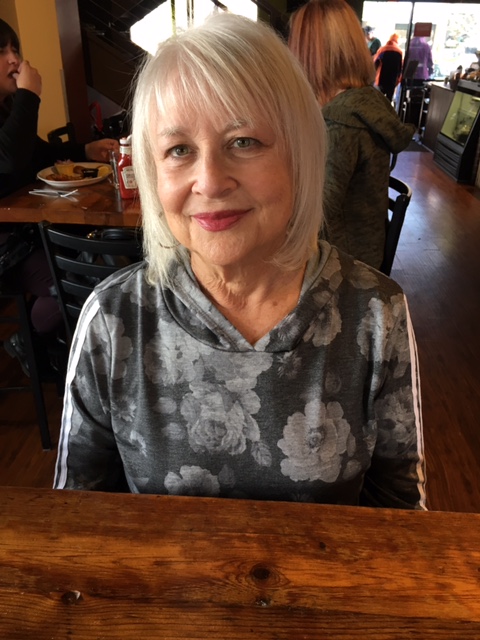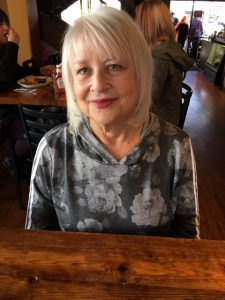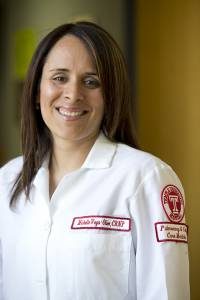‘Support and Respect’ Shown by Nurses Helpful and Comforting, Says IPF Patient as Thank You
Written by |

Marj Korn has been living with IPF since 2011. (Photo courtesy of Marj K.)
Like many of those living with serious chronic diseases such as idiopathic pulmonary fibrosis (IPF), Marj Korn depends on nurses to help her through the difficult journey.
“They have always been kind and made sure to make me as comfortable as possible,” said the former senior recruitment manager. “I need to have many blood tests and exams that require the nursing teams to be diligent and respectful of my condition. They make me feel at ease and far less stressed than I would feel without their support.”

Marj Korn, 70, has been living with IPF since 2011. (Photo courtesy of Marj Korn)
Her nurses, including those involved in pulmonary rehabilitation, encourage the 70-year-old to push herself harder and to ask questions. If they can’t answer, they direct her to a doctor. They also monitor her physical and mental responses, and explain to her why things are done in certain ways.
“They educate me on how to breathe correctly to make life easier, and how this all affects my total body,” said Marj, who was diagnosed with IPF in 2011, and agreed to an interview for National Nurses Week, which runs through Saturday, to thank all of those who have helped her.
IPF is a disease that, for reasons unknown, results in lung scarring. Over time, the fibrosis gets worse and it becomes difficult to take in deep breaths, so the lungs cannot take in enough oxygen. The rare disease affects roughly 2 in 10,000 individuals globally.
Leading up to her diagnosis, Marj had begun feeling light-headed and out of breath, particularly when climbing stairs. Thinking she was just out of shape, she kept symptoms to herself until an annual physical checkup. Noting the rapid decline in her oxygen levels during a stress test, the heart specialist she was sent to figured it had more to do with her lungs than her heart. That’s when her saga began.
In addition to using supplemental oxygen when on long hikes or during strenuous exercise, Marj takes Esbriet (pirfenidone) to help with breathing. Esbriet, marketed by Genentech, is an FDA-approved treatment for IPF since 2014.
“Nurses have taken the time to explain to me the possible side effects of IPF and when supplemental oxygen is needed,” said Marj, the divorced mother of two adult children, with five grandchildren. “They have pointed out ways to breathe that saves exertion, and methods to use to build up my core to save energy and therefore breathe easier.”
She said she feels she can communicate with nurses without being judged or thought less of because of her condition. While empathetic, her nurses are always respectful of her as a person, she said.
“I rely on nurses to be honest, conscientious and supportive without being critical,” said Marj, who recently moved to Kauai, Hawaii, from Denver. The lower altitude, she said, makes it easier for her to breathe. “I realize nurses’ workloads are tremendous, but I have found that the majority of them will take the time to be there for me when needed. For that, I am so thankful.”
While Marj isn’t one of her patients, Michelle Vega-Olivo is a pulmonary nurse practitioner at Temple Lung Center in Philadelphia. She spends long hours with IPF patients. “We’re on our feet a lot,” said Vega-Olivo, who became a nurse practitioner in 2010. “We’re constantly educating about the disease, its symptoms and medications.”
Patients are monitored based on symptoms, a pulmonary function test, a six-minute walk test, and X-ray imaging. “Every patient is different, each trajectory is different,” she said. The disease mostly affects men over the age of 60.

Michelle Vega-Olivo is a pulmonary nurse practitioner at Temple Lung Center. (Photo courtesy of Vega-Olivo)
In addition to working 10 to 12 hours daily, Vega-Olivo is busy with programs, symposiums, conferences and support groups. “It’s that extra outside research we do to make the patients better overall, improve their psyche so that they feel better emotionally,” she said. “Nurses also go to international events where the latest research trials are being announced. We’re keeping up with evidence-based practice. There’s a lot of reading.”
What she likes best is being able to spend more time with patients than pulmonologists often can. “We are more hands-on here,” she said. “We also work with pulmonologists, collaborating with them on assessments and treatment plan.”
What often complicates the well-being of those with IPF and other pulmonary diseases is the internet, which most patients spend a lot of time on.
“It’s our biggest challenge. The internet can be very scary,” said Vega-Olivo, who also has a master’s degree in nursing. “Some websites aren’t up to date, and some say it’s fatal two years from diagnosis, which isn’t always the case. I can tell patients about research trials, if they’re interested. I think of what I’d want to know if I’m the patient or family member.”
“The internet also affects medications that we prescribe. Patients see these side effects, and their family members are on the internet telling the patient what they’ve read. Whatever they read is what they believe until you educate them.”
Vega-Olivo’s job sometimes has her referring patients to specialists such as gastroenterologists, and to palliative care for symptom management and improved quality of life.
“We look at them as individuals and what their goals are and what they want to improve with the disease,” she said. “So, each plan is going to be unique to that individual, and that happens over multiple visits. We also offer support to family members because it’s also a family disease.”
Vega-Olivo said she always wanted to be a nurse, a goal achieved in 1996. “I never changed my mind growing up,” she said. “I grew up in a huge family. My parents are from Puerto Rico. We take care of each other. The whole family helps out. I don’t think I ever thought of becoming anything else.”
What surprised her, she said, is how connected she becomes with patients. “If they do well you’re happy for them and their family, but if they do worse than expected, you take it home. You want to do everything you can for them to get better. I didn’t realize that in nursing school.
“Just yesterday I found out one of my favorite patients who had pulmonary fibrosis passed. I cried,” she said, softly. “Life is short and you just never know what can happen.
“You have plans, but life can change any minute.”






